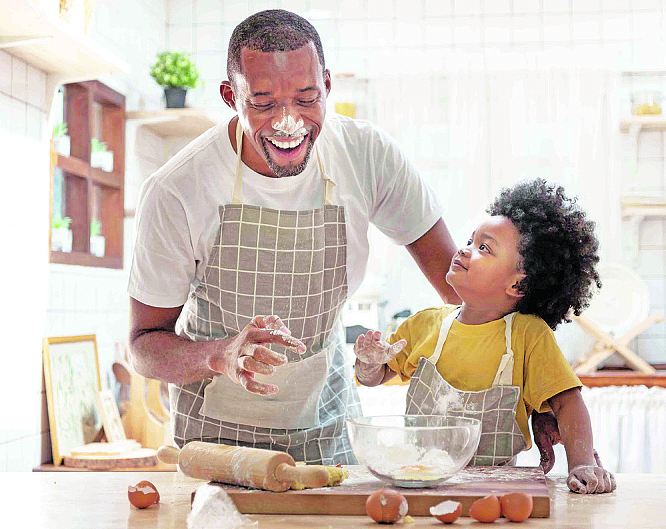By Moses Mpanga
Society has taught men to be providers in a family. While this is an admirable trait, it is not the only role a man ought to play in a family. A father can be a carer, nurturer and a confidant of his children, too.
This will help him to not only build a relationship with his children, but also bond with them, which can be achieved through engaging in hands-on activities with the children.
According to Chase Scheinbaum, a renowned psychologist, as toddlers, we may not remember specifics of family events, but we carry the emotional content of those adventures with us through adulthood. Unfortunately, fathers miss out on these bonding moments mostly out of ignorance.
Your child builds strong memories of fond doings within their family and they unconsciously snack on these as adults for their well-being.
If you were not a part of these building blocks, you are actually “irrelevant”. If your children do not check in with you for months, it is mainly because they did not bond with you as they grew up.
The human brain mostly retains what we take part in than what is done for us. This explains why memories of things done with our children are stronger than memories of things done for them.
In his article, Brain Rules, John Medina says events that have an emotional appeal, such as those acquired from intentional interactions with our parents are likely to be retained in our memories as important events in our lives.
If you go to a market or any public place, you will find more women than men in company of their children harnessing these moments.

In addition, more often than not, mothers are seen single-handedly taking their children back to school. I have interfaced with husbands who work hard for their wives to be able to spend ample time with their children. Unknown to them, this is absenteeism, and it robs them of the opportunities to bond with their children.
Presently, the gap between fathers and their children is growing wider with men increasingly getting sucked into daily routines.
Our children have learnt to accept our disengagement. If your children disengage further from you when they become successful later in their lives, do not lament. They will only be giving you a taste of your own medicine.
When your child receives feedback from you about how they are progressing with the different tasks, it helps them grow free around you, feel appreciated, confident and ultimately build a bond with you. But you are not doing any of these!
The writer is a clinical psychologist, founder and director of MIND Nest Uganda









Leave feedback about this